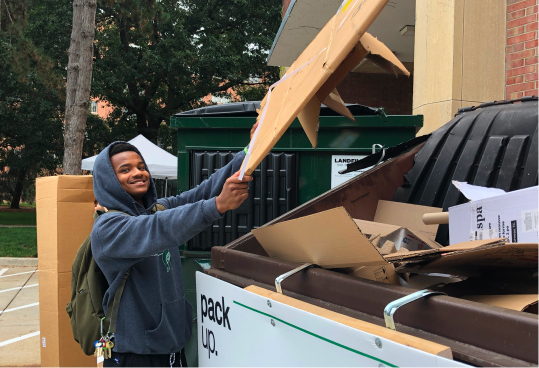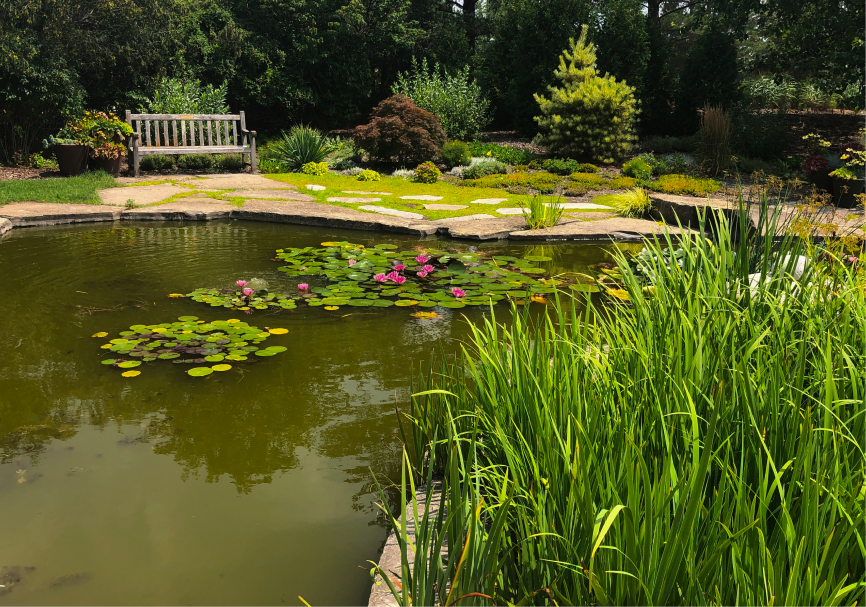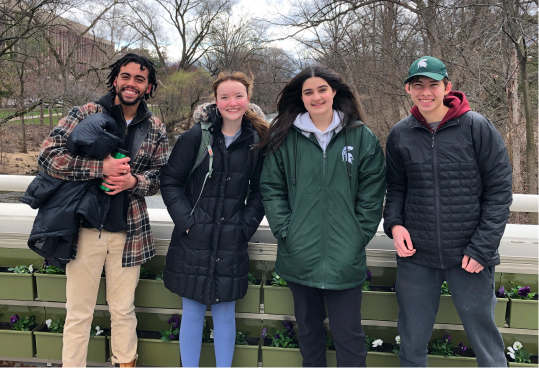< About
< Academics
< Campus
< Donate
< Events
< Get involved
< Resources
MSU is home to over a dozen gardens that are open to the public, free of charge, all year round. The gardens that blanket Michigan State University's 5,200 acre campus are a special part of the Spartan experience. They are not just beautiful spaces to relax for the public and our campus community, but are a key component of a sustainable university, enhancing biodiversity and providing habitat for pollinators. Serving as a living learning laboratory, the gardens also provide ample opportunities to engage students and the public in experiential learning, while conducting cutting edge research to support horticultural and agricultural industries.
Gardens, whether on campus or in your backyard, help support many U.N. Sustainable Development Goals. For example, the flora and fauna within gardens provide valuable ecosystem services that support life on land and local gardens can address food insecurities in our communities. On a larger scale, the horticultural and agricultural industries provide millions of jobs in the U.S. alone.
Virtual Tour of the Gardens
Explore the ways that gardens contribute to MSU research, education and outreach.
Support the Gardens
In August 2021, we celebrated MSU Garden Month. Find out how you can get involved or support the gardens of MSU.
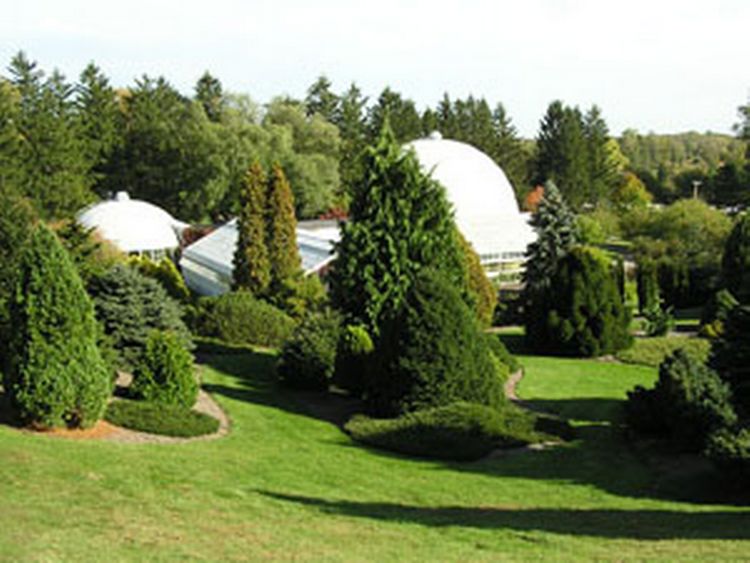
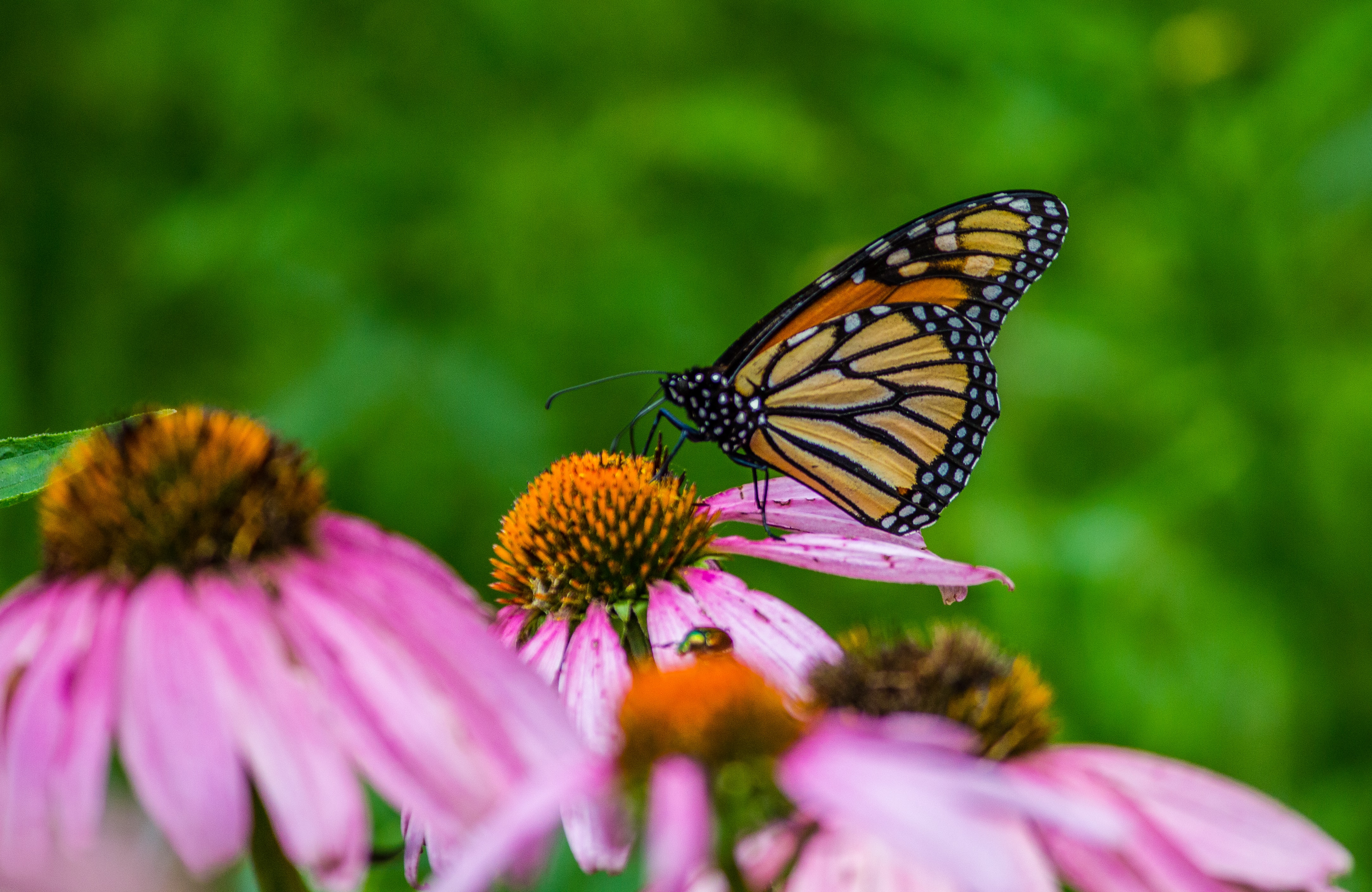
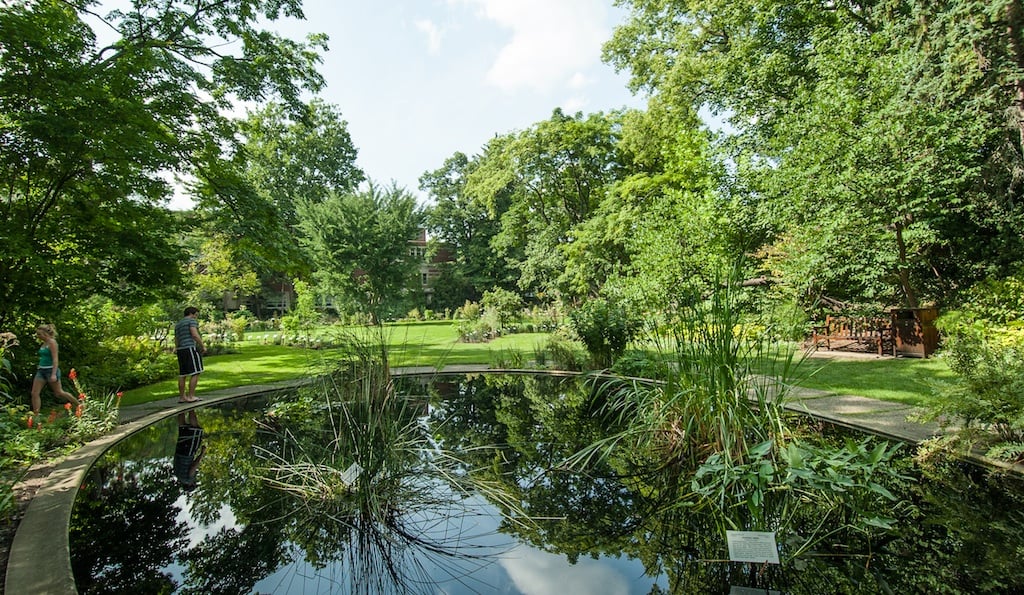
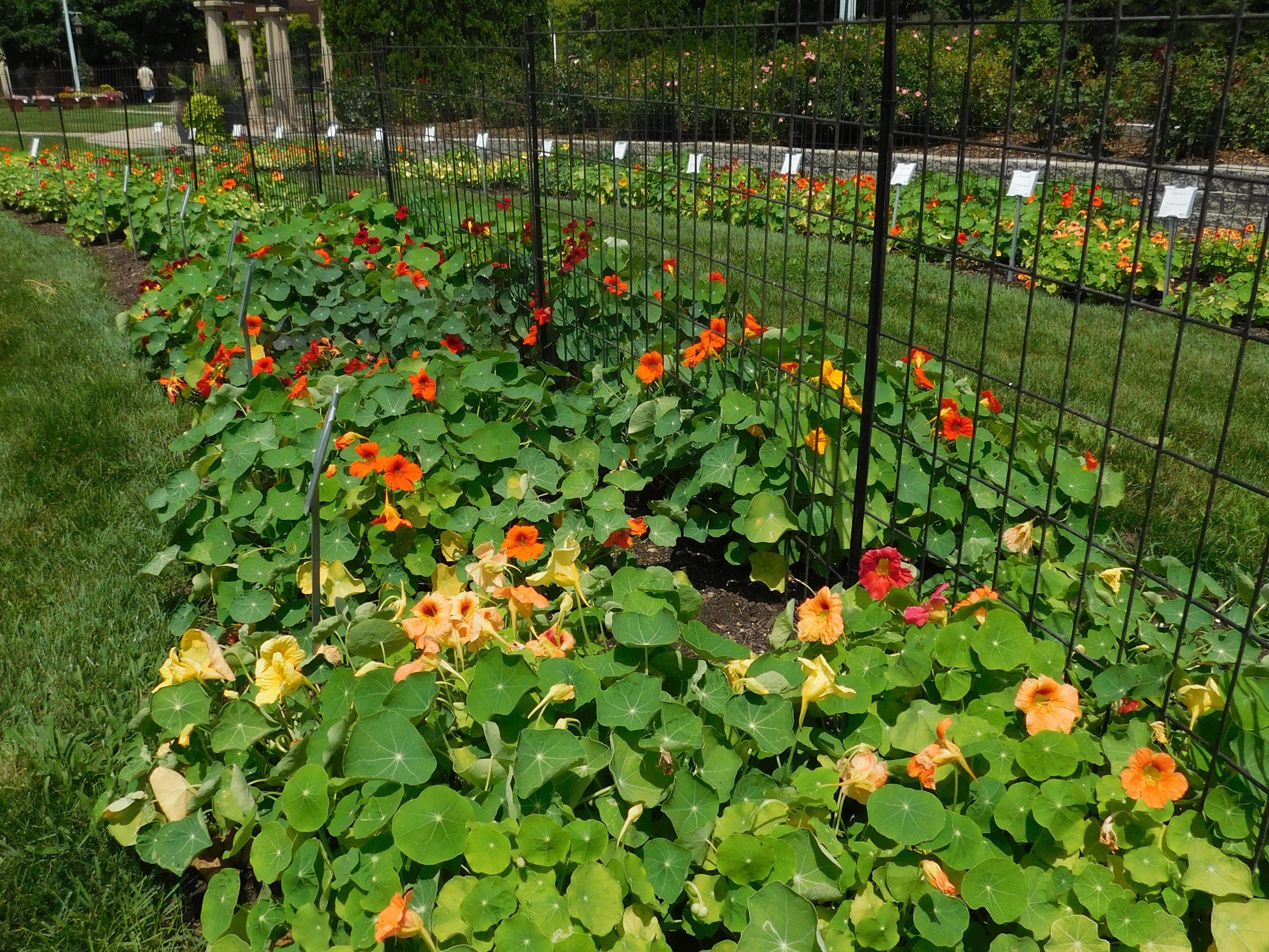
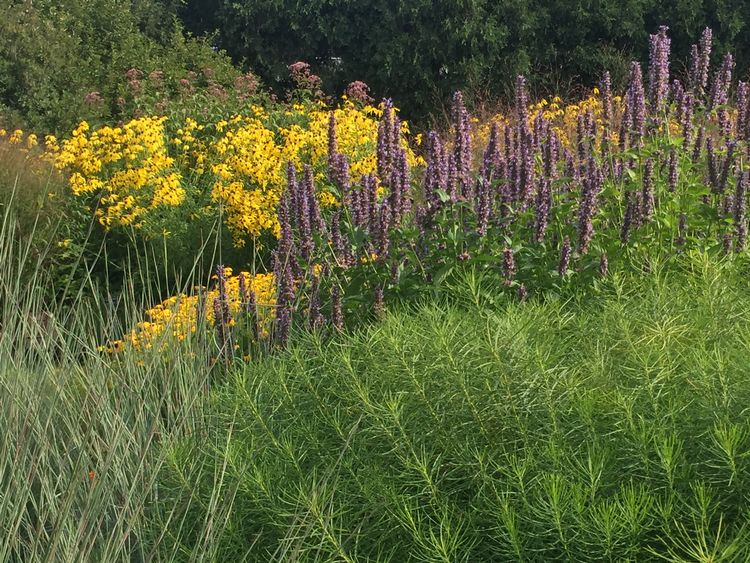
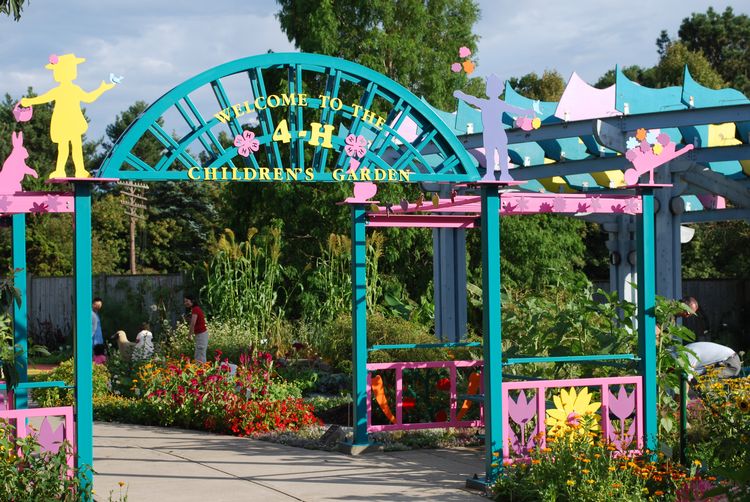
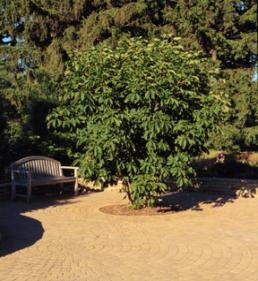
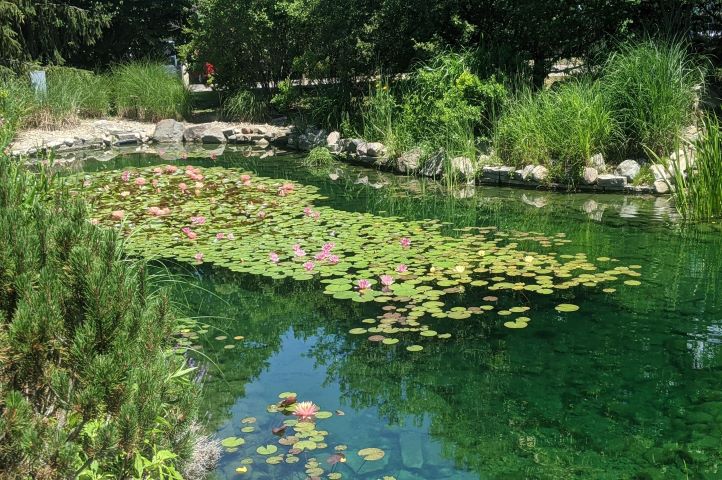
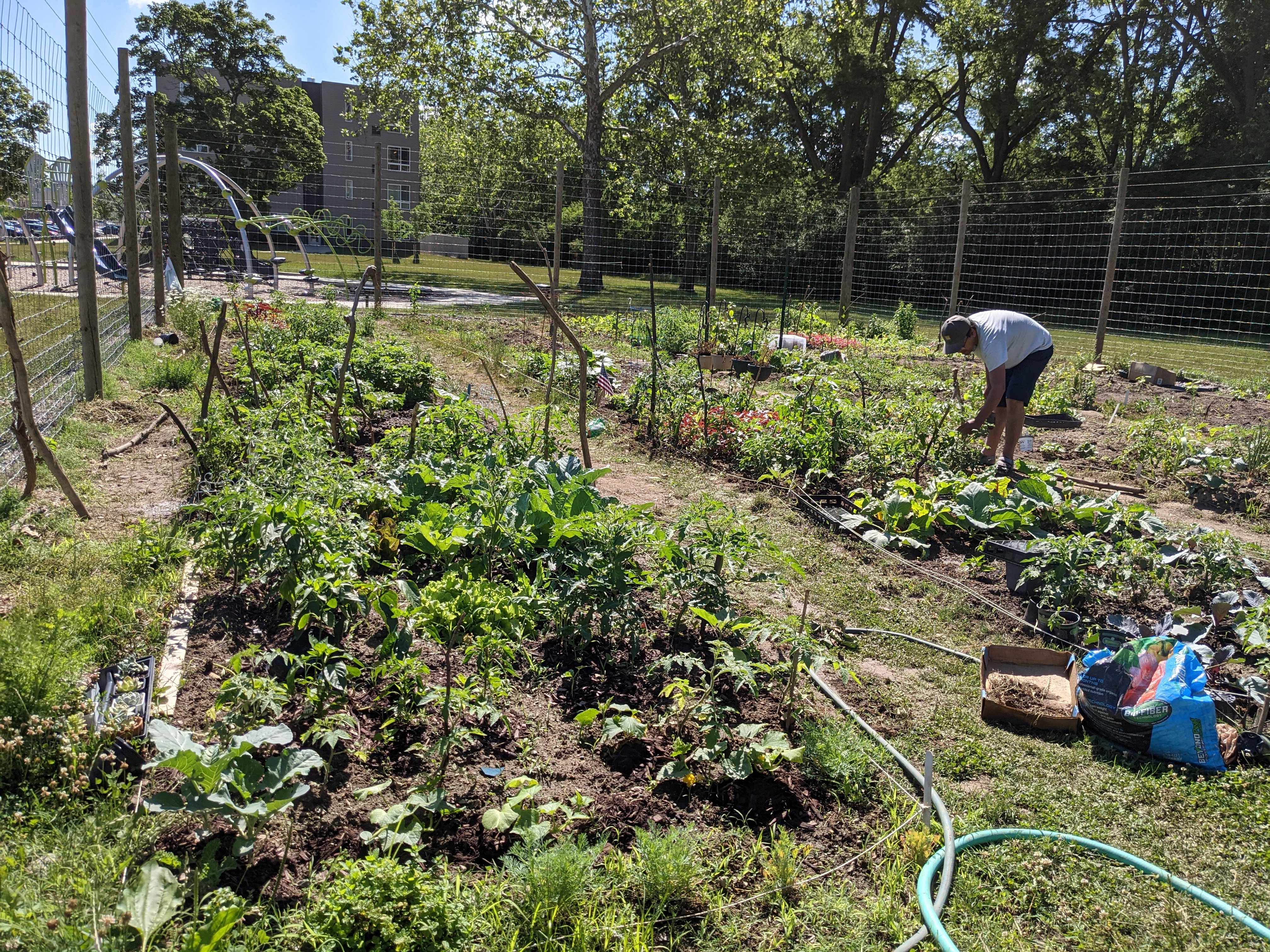
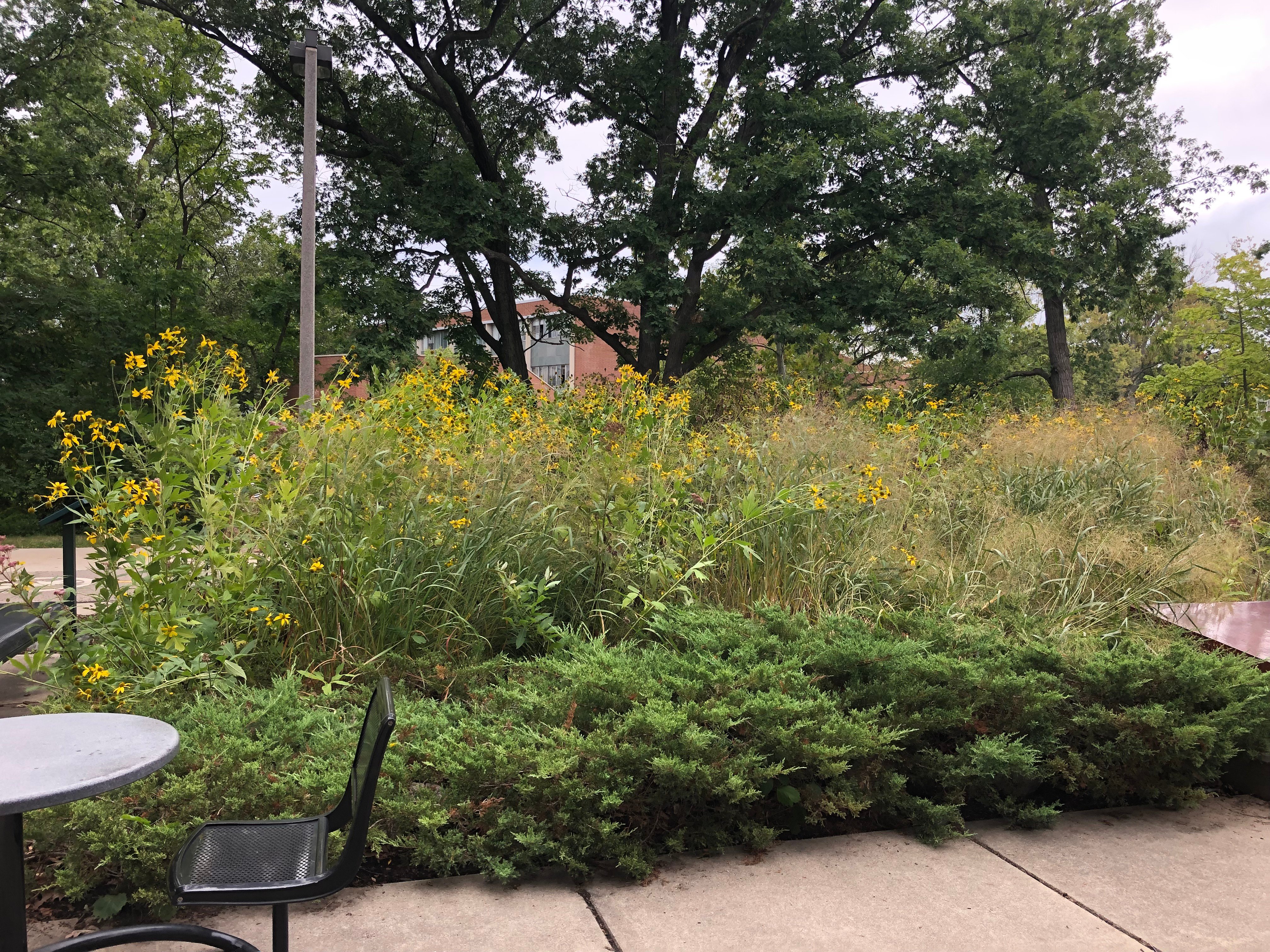
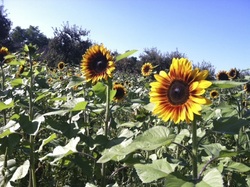
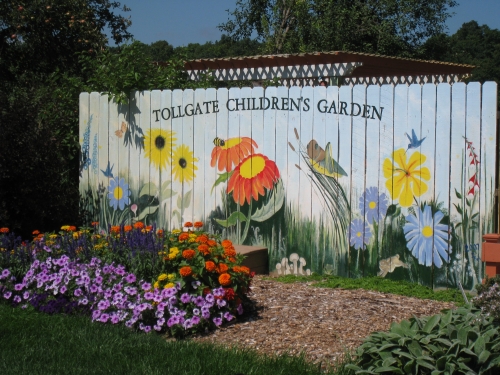
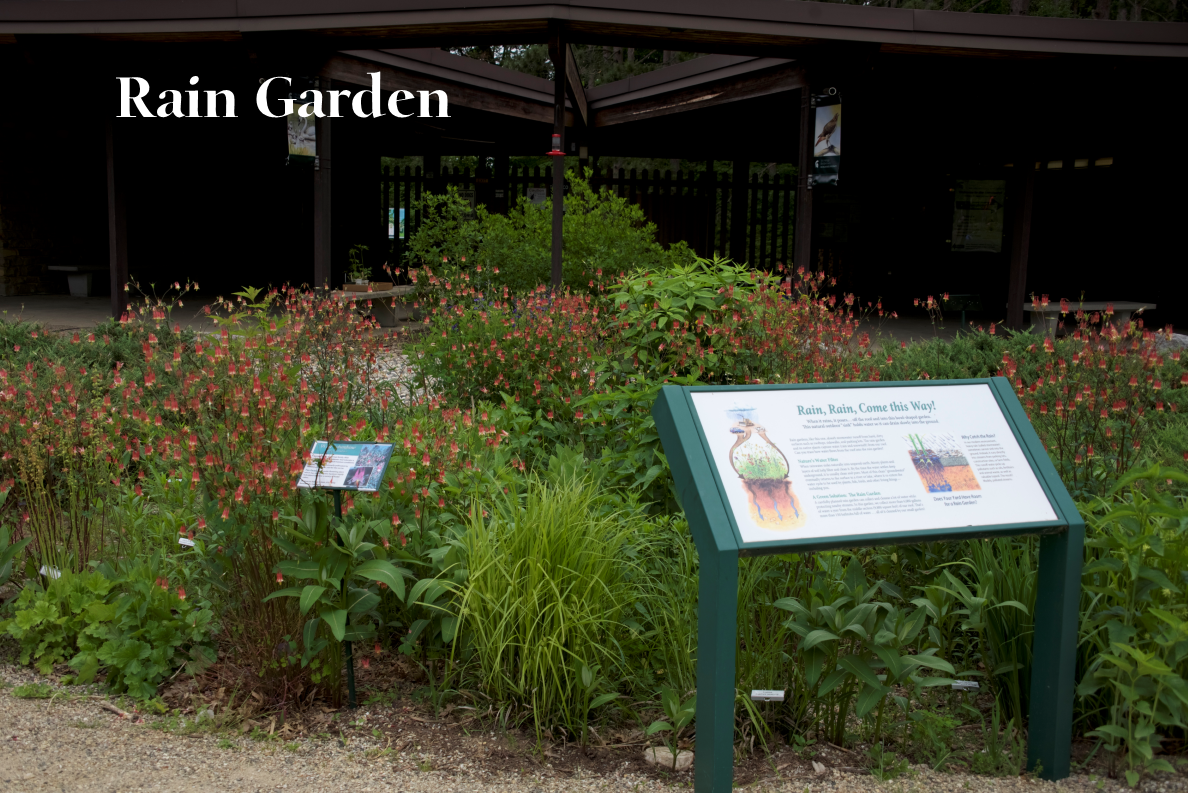














Hidden Lake Gardens contains a conservatory, six miles of paved roads, 10 miles of hiking trails and 755 acres of plants, including three prominent collections: the Benedict Hosta Hillside, which serves as the Michigan Hosta Society’s reference garden; the McCready Bonsai Courtyard; and the world-renowned Harper Collection of Dwarf and Rare Conifers.Hidden Lake Gardens
(Tipton, MI)
There are many pollinator-friendly gardens around campus to visit freely, and MSU is working to create a pollinator corridor along the Red Cedar River. In 2020, a pollinator garden was planted along the river near Shaw Hall. The student club, Sustainable Spartans, worked with IPF and the Office of Sustainability to establish another pollinator garden nearby in fall 2021. This isn’t the first student project to support pollinators; find another student-led pollinator garden on the northwest corner of Wells Hall, planted by RISE students in 2017. In addition, Fisheries and Wildlife Club is helping restore native habitat that is pollinator friendly on campus in collaboration with IPF and the Plant Biology Department. MSU hosts volunteer days at campus pollinators gardens every year, including Spartan Days of Service.MSU Pollinator Gardens
The W.J. Beal Botanical Garden, established in 1873 by Professor William James Beal, is the oldest continuously operated university botanical garden of its kind in the United States. With more than 5,000 different kinds of plants, this garden serves as a living laboratory for education, research, and outreach. The garden is open at all times throughout the year without an admission charge.W.J. Beal Botanical Garden
The Trial Garden, part of the MSU Horticulture Gardens, grows and evaluates hundreds of new varieties each year including annual, perennials, and vegetables. The garden is open without an admission charge.Amien and Florence
Center Trial Gardens
The Judith Delapa Perennial Garden features the colors, textures and forms of flowering and nonflowering herbaceous perennials, bulbs and ornamental grasses. Ten island beds totaling 6,500 square feet informally display a multitude of diverse perennials. This garden is part of the MSU Horticulture Gardens and the garden is open without an admission charge.Judith DeLapa
Perennial Garden
Expose your child to the enchanting world of the 4-H Children's Garden, part of the MSU Horticulture Gardens. A special place created just for children and the young at heart, the garden features over 56 theme areas. The garden is a perfect place to learn about horticulture, as it allows hands-on exploration along with several interactive activities. Admission is free.MSU 4-H Children's Garden
The Clarence E. Lewis Landscape Arboretum, part of the MSU Horticulture Gardens, is an instructional arboretum for students interested in landscape development. The site has its beginnings as the old campus nursery and as a result many remaining specimen trees lend a mature appearance to much of the arboretum. The arboretum continues to grow, providing learning opportunities for students, industry professionals, gardeners, and community members. Within the arboretum are over 15 featured garden areas, including the Kathleen and Milton Muelder Japanese Garden and the Yvonne V. Wilson Native Plant Garden. The arboretum is open all year, dawn to dusk. Admission is free.Clarence E. Lewis
Landscape Arboretum
Based on the vision of Dr. James Potchen, the Radiology Healing Gardens were established in 2000 to help meet the wellness needs of our community. The Radiology facility is surrounded by lovely gardens, ponds and waterfalls. The serenity of the landscape is the epitome of a holistic approach to patient healing and provides a calming space for visitors, students and employees. This hidden gem is worth a special trip. Admission is free.Radiology Healing Gardens
The 1855 Place Community Garden was established by students for residents of the 1855 Place Apartments. The garden cultivates individual growth and neighborhood unity while also offering youth gardening education. The community garden plays an important role in providing spaces for residents to grow their own food, increasing their access to healthy foods. It also promotes a sense of community belonging and an opportunity for residents to be physically active.1855 Place
Community Garden
MSU is also home to rain gardens, which help the university manage stormwater. Rain gardens have shallow surface depressions and are planted with native vegetation to capture and treat stormwater runoff from rooftops, streets, and parking lots. Rain gardens reduce the volume and rate of runoff while also provide pollutant removal and habitat benefits. See rain gardens freely in action by Erickson Hall, at Minskoff Pavilion, and at the Surplus Store and Recycling Center.MSU Rain Gardens
The MSU Student Organic Farm is a 15-acre, certified organic year-round teaching and production farm. Their markets include 42-week CSA, online shop, and sales to MSU dining halls and other wholesale outlets. They use passive solar greenhouses (hoophouses) to produce and distribute fresh produce all year long. The farm is located south of MSU's main campus.MSU Student Organic Farm
MSU Tollgate Farm provides non-formal learning for children, families, and adults, offering the unique opportunity to experience agriculture hands-on in an urban environment. The farm has nearly twenty specifically planned and maintained garden sites ranging from the functional Nursery area to the delightful Children’s Garden. MSU Tollgate Farm gardens are free and open to the public for self guided tours Monday through Saturday from 9 a.m. to dark. The site is closed on Sundays and Holidays.Tollgate Farm and Education Center (Novi, MI)
The Native Gardens at the Kellogg Bird Sanctuary are a set of beautiful botanical gardens which feature unique and attractive native plants from around Michigan. With educational signs and over 75 species of native plants, the gardens demonstrate the many benefits and landscaping possibilities offered by Michigan plants.W.K. Kellogg Bird Sanctuary (Augusta, MI)
Hidden Lake Gardens contains a conservatory, six miles of paved roads, 10 miles of hiking trails and 755 acres of plants, including three prominent collections: the Benedict Hosta Hillside, which serves as the Michigan Hosta Society’s reference garden; the McCready Bonsai Courtyard; and the world-renowned Harper Collection of Dwarf and Rare Conifers.Hidden Lake Gardens
(Tipton, MI)
There are many pollinator-friendly gardens around campus to visit freely, and MSU is working to create a pollinator corridor along the Red Cedar River. In 2020, a pollinator garden was planted along the river near Shaw Hall. The student club, Sustainable Spartans, worked with IPF and the Office of Sustainability to establish another pollinator garden nearby in fall 2021. This isn’t the first student project to support pollinators; find another student-led pollinator garden on the northwest corner of Wells Hall, planted by RISE students in 2017. In addition, Fisheries and Wildlife Club is helping restore native habitat that is pollinator friendly on campus in collaboration with IPF and the Plant Biology Department. MSU hosts volunteer days at campus pollinators gardens every year, including Spartan Days of Service.MSU Pollinator Gardens
The W.J. Beal Botanical Garden, established in 1873 by Professor William James Beal, is the oldest continuously operated university botanical garden of its kind in the United States. With more than 5,000 different kinds of plants, this garden serves as a living laboratory for education, research, and outreach. The garden is open at all times throughout the year without an admission charge.W.J. Beal Botanical Garden
The Trial Garden, part of the MSU Horticulture Gardens, grows and evaluates hundreds of new varieties each year including annual, perennials, and vegetables. The garden is open without an admission charge.Amien and Florence
Center Trial Gardens
The Judith Delapa Perennial Garden features the colors, textures and forms of flowering and nonflowering herbaceous perennials, bulbs and ornamental grasses. Ten island beds totaling 6,500 square feet informally display a multitude of diverse perennials. This garden is part of the MSU Horticulture Gardens and the garden is open without an admission charge.Judith DeLapa
Perennial Garden
Expose your child to the enchanting world of the 4-H Children's Garden, part of the MSU Horticulture Gardens. A special place created just for children and the young at heart, the garden features over 56 theme areas. The garden is a perfect place to learn about horticulture, as it allows hands-on exploration along with several interactive activities. Admission is free.MSU 4-H Children's Garden
The Clarence E. Lewis Landscape Arboretum, part of the MSU Horticulture Gardens, is an instructional arboretum for students interested in landscape development. The site has its beginnings as the old campus nursery and as a result many remaining specimen trees lend a mature appearance to much of the arboretum. The arboretum continues to grow, providing learning opportunities for students, industry professionals, gardeners, and community members. Within the arboretum are over 15 featured garden areas, including the Kathleen and Milton Muelder Japanese Garden and the Yvonne V. Wilson Native Plant Garden. The arboretum is open all year, dawn to dusk. Admission is free.Clarence E. Lewis
Landscape Arboretum
Based on the vision of Dr. James Potchen, the Radiology Healing Gardens were established in 2000 to help meet the wellness needs of our community. The Radiology facility is surrounded by lovely gardens, ponds and waterfalls. The serenity of the landscape is the epitome of a holistic approach to patient healing and provides a calming space for visitors, students and employees. This hidden gem is worth a special trip. Admission is free.Radiology Healing Gardens
The 1855 Place Community Garden was established by students for residents of the 1855 Place Apartments. The garden cultivates individual growth and neighborhood unity while also offering youth gardening education. The community garden plays an important role in providing spaces for residents to grow their own food, increasing their access to healthy foods. It also promotes a sense of community belonging and an opportunity for residents to be physically active.1855 Place
Community Garden
MSU is also home to rain gardens, which help the university manage stormwater. Rain gardens have shallow surface depressions and are planted with native vegetation to capture and treat stormwater runoff from rooftops, streets, and parking lots. Rain gardens reduce the volume and rate of runoff while also provide pollutant removal and habitat benefits. See rain gardens freely in action by Erickson Hall, at Minskoff Pavilion, and at the Surplus Store and Recycling Center.MSU Rain Gardens
The MSU Student Organic Farm is a 15-acre, certified organic year-round teaching and production farm. Their markets include 42-week CSA, online shop, and sales to MSU dining halls and other wholesale outlets. They use passive solar greenhouses (hoophouses) to produce and distribute fresh produce all year long. The farm is located south of MSU's main campus.MSU Student Organic Farm
MSU Tollgate Farm provides non-formal learning for children, families, and adults, offering the unique opportunity to experience agriculture hands-on in an urban environment. The farm has nearly twenty specifically planned and maintained garden sites ranging from the functional Nursery area to the delightful Children’s Garden. MSU Tollgate Farm gardens are free and open to the public for self guided tours Monday through Saturday from 9 a.m. to dark. The site is closed on Sundays and Holidays.Tollgate Farm and Education Center (Novi, MI)
The Native Gardens at the Kellogg Bird Sanctuary are a set of beautiful botanical gardens which feature unique and attractive native plants from around Michigan. With educational signs and over 75 species of native plants, the gardens demonstrate the many benefits and landscaping possibilities offered by Michigan plants.W.K. Kellogg Bird Sanctuary (Augusta, MI)
Hidden Lake Gardens contains a conservatory, six miles of paved roads, 10 miles of hiking trails and 755 acres of plants, including three prominent collections: the Benedict Hosta Hillside, which serves as the Michigan Hosta Society’s reference garden; the McCready Bonsai Courtyard; and the world-renowned Harper Collection of Dwarf and Rare Conifers.Hidden Lake Gardens
(Tipton, MI)
01 / 13
